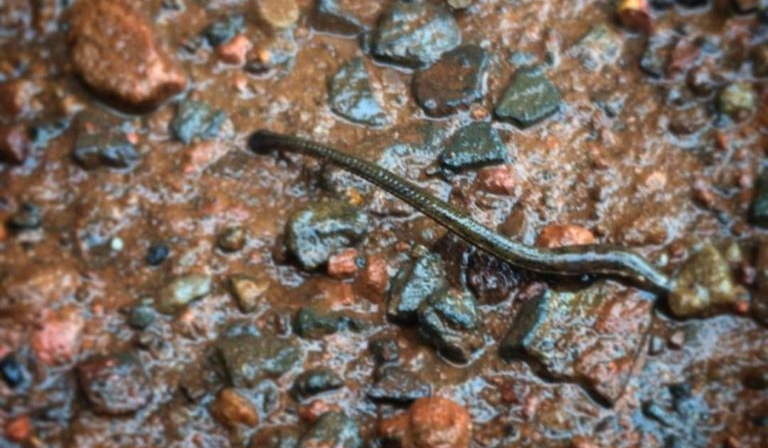
How to Cope Up with Leeches on a Monsoon Trek
Trekking in monsoon is refreshing, but you may have an unavoidable blood sucking company with you on the trek. It is the leeches we are talking about. As much is the monsoon a great season to trek, it is a favorable time for leeches to breed. Finding a blood-thirsty slimy worm stuck to your body isn’t a pleasant experience, but it shouldn’t be the reason to avoid monsoon treks.

Are Leech Bites Harmful?
A leech bite is not dangerous and disappears after two to three weeks. Here is what happens when a leech sticks to the skin. When in contact with the skin of the host, a leech injects anesthetics and suck blood. It releases a substance called Hirudin which prevents blood clotting, giving it a consistent, but a meager supply of food from our body.
Within 20 to 30 minutes, the leech becomes heavy with a tummy full of blood and drop off the body. You may either know that when a leech bites you or you won’t feel a thing. In rare cases, a bite could cause an allergic reaction or infection, so keep a check on symptoms like fever or vomiting, within the next two hours after getting bitten.
Leech bites do not cause any major problems. Most people experience little bleeding for the tiny wound and itching at the wound site after the wound dries.
Do’s and Don’ts
- Do not use burning cigarettes to remove the leech from your skin as it may regurgitate the contents of its gut into the bite.
- Don’t kill them, flick them away. Leeches are not harmful and they are an important part of the food chain.
- Do not pull the leach as its teeth may remain embedded in your skin causing irritation.
- After the leech is removed, clean the wound with soap solution or antiseptic like Dettol.
Prevention Steps
- While trekking, tuck your trousers inside your boots so that no leech comes in contact with your skin.
- Watch out for the leeches as they are very common in monsoon. Brush them off before they stick themselves to the skin if you find them stuck to your cloth or skin.
- Don’t freak out while you see one, relax and gently remove them from your skin using your fingernails or edge of a knife by breaking its suction.
Leeches aren’t harmful, and it is common for trekkers to spot them, especially in the monsoon — they are everywhere, on the leaves, in water puddles and grass. Equip yourself with the right knowledge about the leeches and nothing should stop you from venturing into the beautiful hills. Experience something new about the nature around you.
Book a Monsoon Trek with NatureWalkers
Happy Trekking!
Subscribe Now (get latest Trekking updates, Offers, travel Stories)
Follow us on Social Medias
